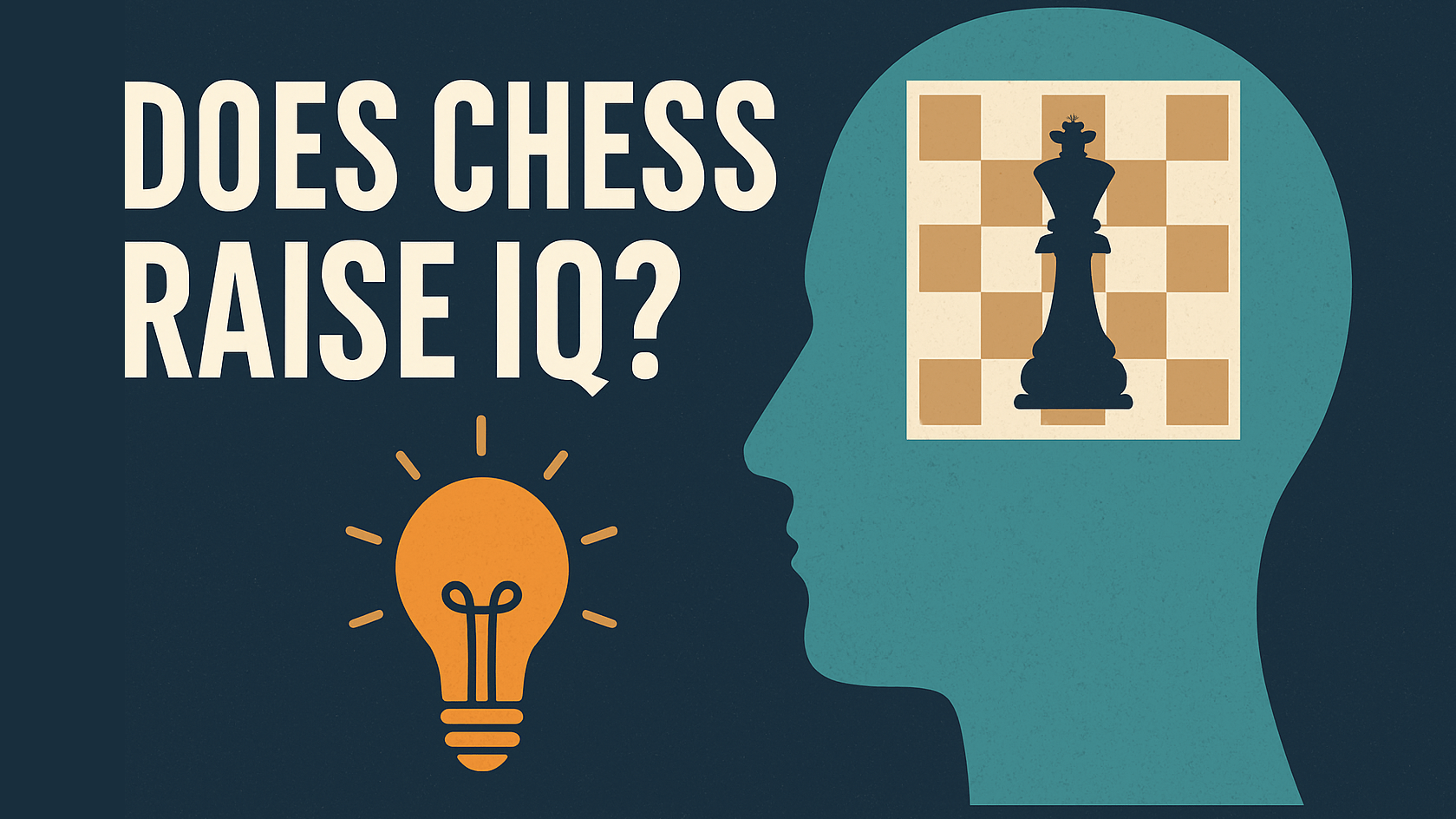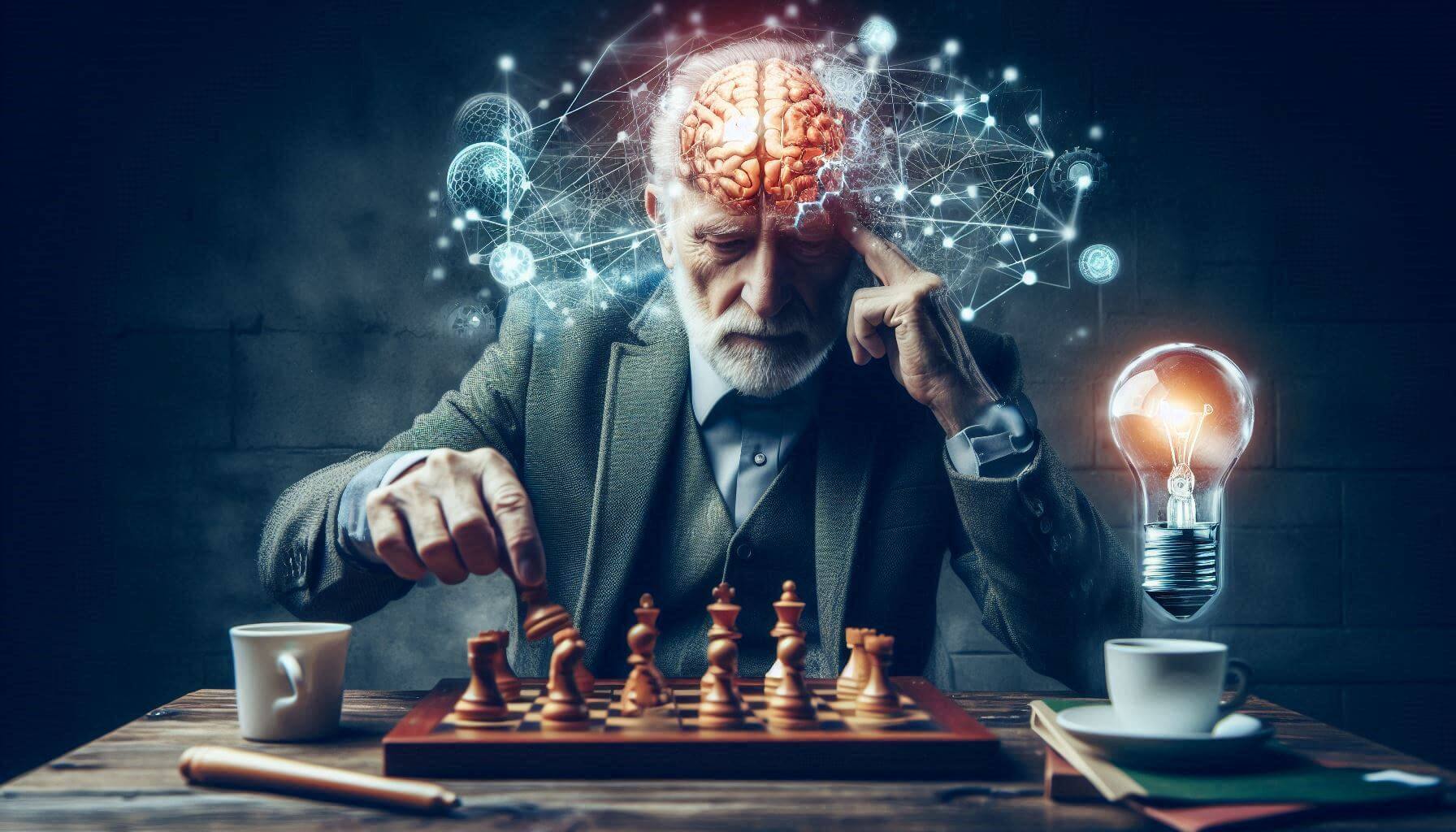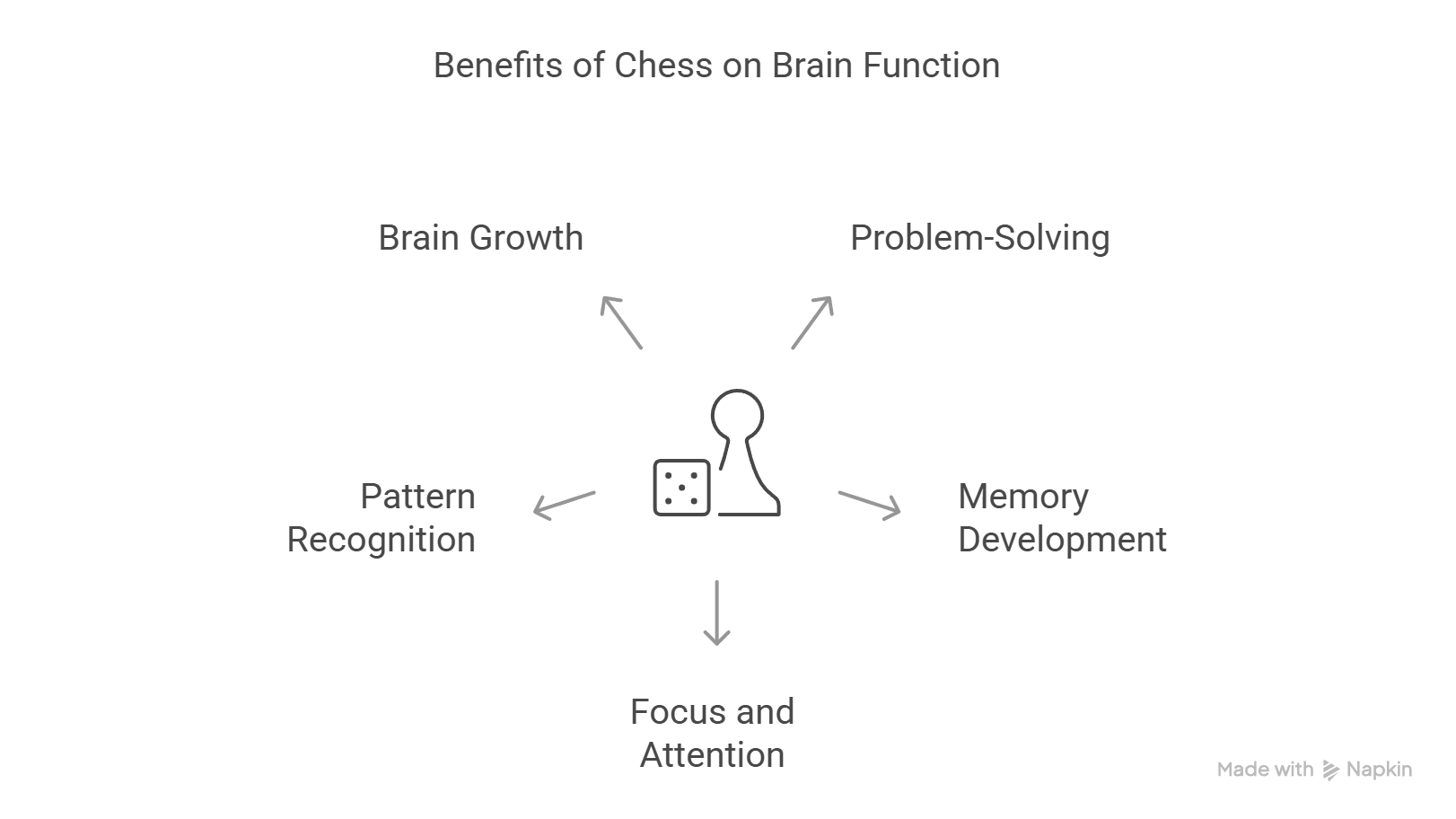Introduction
Can playing chess actually make you smarter? More specifically, many wonder: does chess raise IQ? It’s a question that has fascinated scientists, educators, and chess enthusiasts for years. With its reputation as a game of deep strategy and mental discipline, chess is often associated with high intelligence. But does playing it actively raise your IQ – or are smart people simply more drawn to the game?
This article explores research on whether chess truly enhances cognitive abilities. By examining key scientific studies and expert insights, we aim to distinguish genuine evidence from popular belief and understand the real relationship between chess and intelligence.

Does Chess Raise IQ? What the Research Says
The Venezuelan Study
One of the most frequently cited studies on this topic was conducted in Venezuela, where researchers studied the effects of chess instruction on 4,000 students. Over the course of four months, both boys and girls received structured chess training. The results were striking: participants showed significant increases in their IQ scores by the end of the study. This provides some of the clearest evidence that does chess raise IQ in young learners.
These gains are credited to the mental discipline involved in learning and playing chess. Engaging with the game appeared to stimulate cognitive development, encouraging students to think critically, plan ahead, and stay mentally focused – skills that are closely tied to intelligence.
Meta-Analyses and Literature Reviews
Broader reviews show a modest, consistent correlation between chess skill and cognitive performance. Areas like fluid intelligence (problem-solving in unfamiliar situations), processing speed, short-term memory, and comprehension knowledge are frequently cited as being stronger in chess players than in non-players.
Importantly, researchers also point out that correlation does not imply causation. While skilled chess players often exhibit higher cognitive abilities, it’s not always clear whether chess improved these skills or whether individuals with stronger cognitive abilities are simply more inclined to pursue chess and excel at it. Science Times provides an accessible overview of the ways chess can benefit your brain, including these nuanced findings.
Chess and Aging Minds
Chess isn’t only beneficial for the young. A study on older adults found that 12 weeks of chess training improved cognitive health. The participants showed improvements in general cognitive status, attention, processing speed, and executive functions, along with an enhanced quality of life.
These findings suggest that chess may serve as a valuable mental exercise for aging populations, helping to maintain cognitive sharpness and delay cognitive decline. Well+Good highlights how chess can support brain health at any age, making it a lifelong tool for mental fitness.

How Chess Might Enhance the Brain
Problem-Solving & Strategic Thinking
Chess is often described as a battlefield of minds, where each player must plan several moves ahead, anticipate the opponent’s responses, and adjust strategies in real time. This dynamic process sharpens analytical and critical thinking skills. Decisions require risk evaluation, predicting outcomes, and creative problem-solving under pressure.
Memory Development
Memory plays a central role in chess. Players must remember past games, common opening lines, tactical motifs, and strategic patterns. In doing so, both short-term memory (recalling recent moves and tactics) and long-term memory (storing openings and classic games) are constantly exercised. This repeated use strengthens these memory systems and can lead to improved retention in non-chess-related tasks as well.
Focus and Attention
Chess demands sustained attention. A single lapse in focus can result in a blunder or a lost game. This need for intense concentration helps players train their ability to stay mentally engaged for long periods. Over time, this skill often spills over into other areas, such as academic work or professional tasks that require deep focus.
Pattern Recognition
One of the hallmarks of chess mastery is the ability to recognize patterns – typical tactical motifs, pawn structures, mating nets, and positional themes. Practicing chess improves pattern recognition, a skill vital for math, programming, and medicine.
Brain Growth and Neural Stimulation
Learning and playing chess stimulates the development of dendrites—the branch-like structures in neurons that help transmit information throughout the brain. More dendrites mean faster and more efficient neural communication. This stimulation of brain activity is one reason why chess is considered a valuable mental workout, contributing to overall brain development and improved learning capacity. If you want to dive deeper into the psychological and neural benefits of chess, Exploring Your Mind has an excellent article on the topic.

Does Chess Raise IQ? A Balanced Perspective
When asking does chess raise IQ, it’s important to maintain a balanced perspective. While there’s strong evidence that chess sharpens cognitive abilities, it’s important to maintain a balanced perspective. Chess doesn’t enhance all aspects of intelligence equally, and it’s not a one-size-fits-all solution for raising IQ.
Dr. Gobet says chess improves specific skills but isn’t a magic bullet for overall intelligence. The gains are most noticeable in areas closely aligned with the demands of chess itself.
Moreover, some researchers argue that individuals with higher cognitive abilities are naturally drawn to complex activities like chess, meaning that pre-existing intelligence could play a role in both chess success and cognitive test performance. This makes it difficult to fully separate cause from effect.
In short, while chess can help develop key mental skills, its impact on general IQ may be more nuanced than commonly believed.
Conclusion
The evidence suggests that chess does more than entertain – it challenges and strengthens the mind. From boosting memory and problem-solving skills to improving focus and pattern recognition, chess has been shown to enhance various cognitive abilities. In some cases, especially among children and beginners, it may even lead to increases in IQ scores.
However, while chess is a powerful tool for cognitive development, it’s not a guaranteed formula for raising intelligence across the board. Rather than being a magic bullet, chess should be seen as a form of mental training – like a gym for the brain. Just as physical exercise keeps the body sharp, regular chess play keeps the mind agile and engaged.
For anyone seeking a meaningful way to train their thinking, improve mental stamina, or simply enjoy a game that grows with them, chess remains one of the best brain-boosting activities available. Whether you’re just starting or returning to the game, here’s a guide on how to get better at chess to help you progress step by step.
FAQ
1. Can playing chess increase my IQ permanently? Many people ask does chess raise IQ in a lasting way…
Chess improves cognitive abilities and may temporarily raise IQ, especially in children, but no permanent boost is proven.
2. How long do I need to play chess to see cognitive benefits?
Studies suggest that even a few months of consistent chess practice can lead to improvements in areas like memory, concentration, and problem-solving. As with any skill, the more time and effort invested, the greater the potential benefits.
3. Is chess more effective than other brain-training games?
Chess is unique in its combination of strategy, memory, and pattern recognition. While other brain-training games also offer benefits, chess has the added advantage of being a competitive, structured game with a long history of cognitive research supporting its value.
4. Can adults start playing chess and still gain mental benefits?
Absolutely. Research shows that adults – and even seniors -can improve cognitive functions such as attention, processing speed, and executive functioning through regular chess practice. It’s never too late to start.
5. Do you need to be smart to play chess well?
Not necessarily. While many strong chess players possess high cognitive abilities, playing chess can help develop those skills over time. Dedication, practice, and a willingness to learn are more important than innate intelligence.
